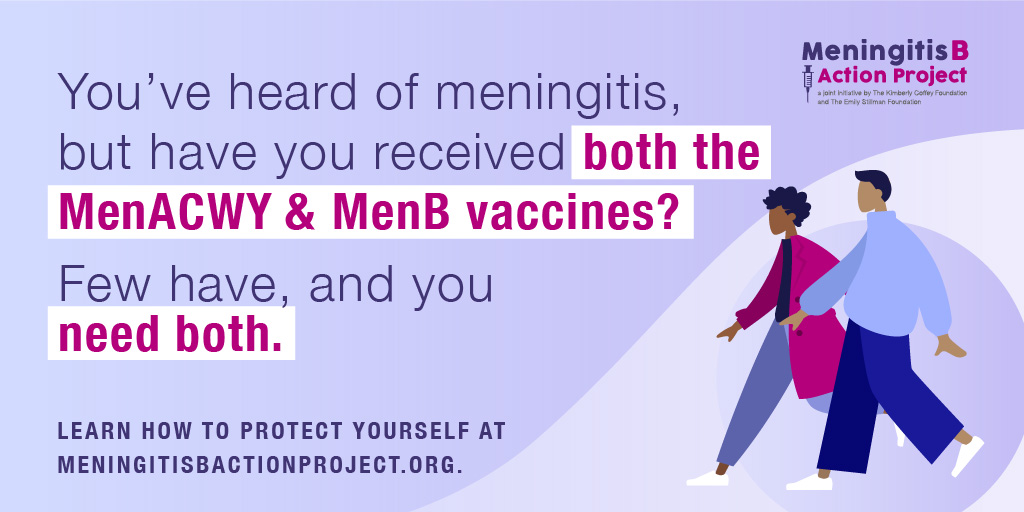The Centers for Disease Control and Prevention recommends that all 11 to 12 year old children get a MenACWY vaccine, with a booster dose at 16 years old. Teens and young adults (16 through 23 years old) also may get a MenB vaccine. Both the MenACWY and MenB vaccines are necessary to be fully vaccinated against the most common form of bacterial meningitis in young adults.
Meningococcal disease refers to any illness caused by bacteria called Neisseria meningitidis. These illnesses are often severe and include infections of the lining of the brain and spinal cord (meningitis) and bloodstream.
People spread meningococcal bacteria by sharing respiratory and throat secretions, such as saliva. This bacteria, however, is not as contagious as germs that cause the common cold or the flu.
- People in the same household
- Roommates (College students are 5+ times more likely to contract Meningitis B than non-college students)
Anyone with direct contact with a person's oral secretions, such as a kissing partner
Young adults, between the ages of 16 and 23, have the highest rates of meningococcal disease in the United States.
About 1 in 10 people have the bacteria that causes meningitis in the back of their nose and throat without being ill. This is called being ‘a carrier.’
When someone has meningococcal meningitis, the bacteria infect the lining of the brain and spinal cord and cause swelling.
- Fever
- Headache
- Stiff neck
- Nausea
- Vomiting
- Photophobia (eyes being more sensitive to light)
- Altered mental status (confusion)
Even with treatment, approximately 1 out of every 10 people who get meningococcal disease will die, and of those who survive, up to 20 percent will suffer serious and permanent complications including brain damage, kidney damage, hearing loss, and amputation of arms, legs, fingers, or toes.
Death can happen in as little as 24-48 hours. People who experience these symptoms, especially if they are unusually sudden, progressive, or severe, should be examined as soon as possible by a healthcare professional.
Talk with your or your child’s doctor if you have questions about meningococcal vaccines. More information can also be found by visiting: www.cdc.gov/vaccines/vpd/mening/index.html.


